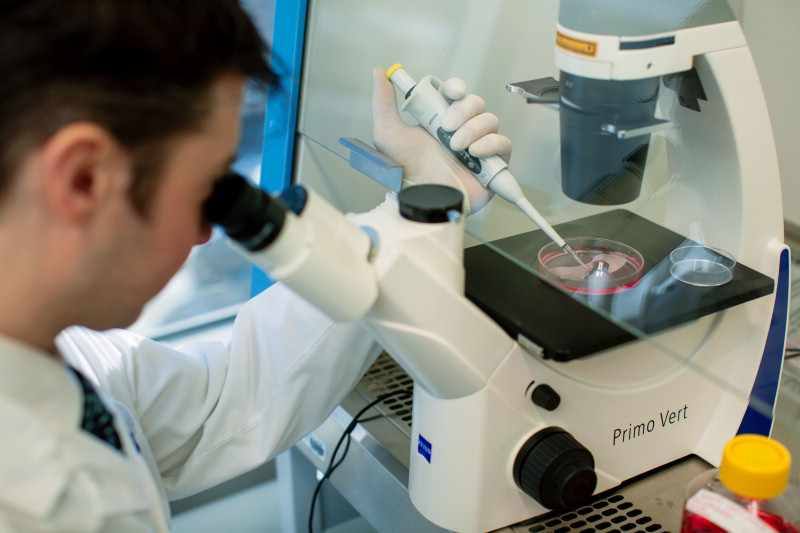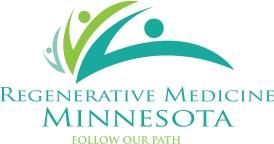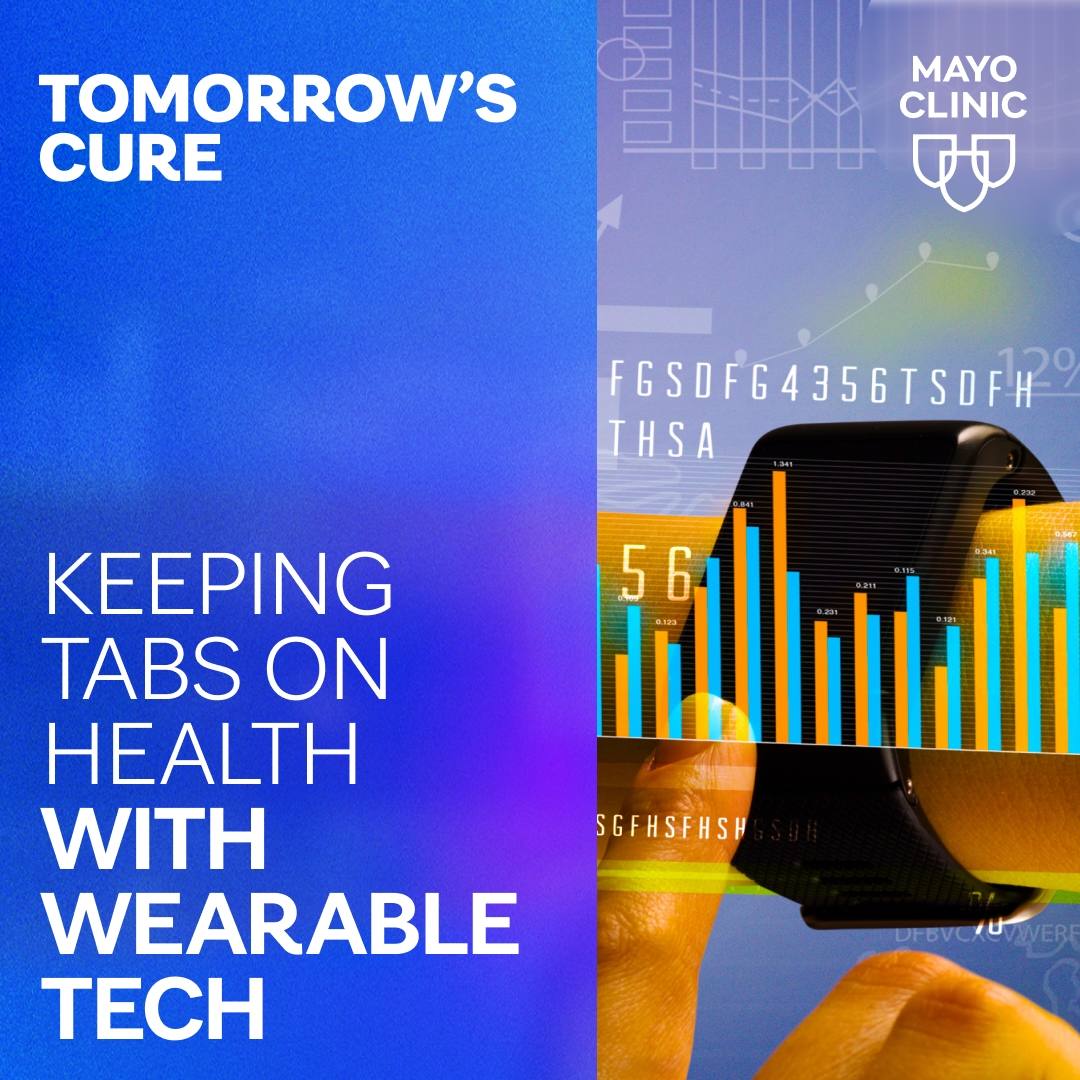-
6 “firsts” in advancing regenerative medicine toward patient care

ROCHESTER, Minn. — A statewide bipartisan initiative is transforming health care from a focus on treating disease to one of tapping the body's ability to heal itself. Regenerative Medicine Minnesota is a legislative initiative aimed at improving health by advancing regenerative medicine in research, technology, education and patient care across the state.
Minnesotans statewide struggle with chronic conditions such as diabetes, heart disease and arthritis that reduce their quality of life and cost the health care system millions of dollars. Regenerative medicine focuses on using the body's ability to heal itself — replacing, repairing, and restoring damaged or missing organs and tissues to health. There is a critical need to ensure that Minnesotans have access to safe and effective treatments.
Every June, scientists, physicians, educators and other health care providers who have received one of the 161 grants awarded through this initiative, meet to share their cutting-edge work and find strategic collaborations to accelerate it. At the 2019 Regenerative Medicine Minnesota annual meeting in Rochester, co-chairs Andre Terzic, M.D., Ph.D., director of Mayo Clinic Center for Regenerative Medicine and Jakub Tolar, M.D., Ph.D., dean of the Medical School and vice president for Clinical Affairs at the University of Minnesota, will highlight the effects Regenerative Medicine Minnesota will have on the state. This year's annual meeting will be held on Monday, June 17, in Rochester.

"Regenerative Medicine Minnesota is laying the platform on which education, industry and medical science are coming together to build the health care of the future. Minnesota is becoming recognized as the Silicon Valley of regenerative medicine," says Dr. Terzic. "This investment has led to tangible advancements in regenerative sciences, translation of new knowledge and the rollout of clinical trials to offer patients hope of new regenerative solutions to improve their health."
"We are putting Minnesota at the forefront of introducing regenerative therapies into clinical practice," adds Dr. Tolar. "Regenerative Medicine Minnesota has taken a novel approach to reaching these goals, developing a pipeline that integrates everything from developing new therapies, to recruiting and retaining the highly trained workforce of the future needed to administer these therapies, to building the industry's capacity to produce them."
Regenerative Medicine Minnesota awards $4.35 million in grants every year. Funding is open to Minnesota-based institutions. Since its inception in 2014, Regenerative Medicine Minnesota has awarded 161 grants totaling $21.9 million.
Dr. Tolar and Dr. Terzic noted six examples of how this grant-funded research may one day transform clinical practice:
- Performing fetal surgery to correct underdeveloped lungs
A Regenerative Medicine Minnesota grant is funding a clinical trial for prenatal surgery to promote lung growth before babies are born. Rodrigo Ruano, M.D., Ph.D., a Mayo Clinic obstetrician and gynecologist, has performed four in utero surgeries on fetuses with a life-threatening disorder known as pulmonary hypoplasia as part of a clinical trial. This condition is caused by congenital diaphragmatic hernia in which fetal lungs are too small for babies to breathe on their own. The grant fosters the development of regenerative approaches to improve lung development and survival.
- Growing replacement blood vessels for patients in need of coronary artery bypass
A patient with a severe heart blockage who needs a second bypass may no longer have a spare vessel that can be used for the surgery, and tissue-engineered arteries lack the cellular lining needed to reduce the risk of blood clots. Professor Robert Tranquillo, Ph.D., a University of Minnesota biomedical engineer in the College of Science and Engineering, is developing a high-speed method of using a patient's stem cells to "seed" the surface of a bioengineered blood vessel developed in his lab that creates a cell lining and quickly makes it ready for surgical implantation.
- Building a new liver to function like a human organ
A liver transplant can mean the difference between life and death for some patients. Often, patients die before they find a suitable donor. With a research grant from Regenerative Medicine Minnesota, Scott Nyberg, M.D., Ph.D., a Mayo Clinic transplantation surgeon, is building an artificial liver and studying whether it could function similar to a kidney dialysis machine, performing critical bodily functions while the liver regenerates. Dr. Nyberg will study if the artificial liver can bridge the gap until a donor liver becomes available or if it could help the patient avoid the need for a transplant altogether.
- Assisting transplant recovery
Shernan Holtan, M.D., a University of Minnesota hematologist and oncologist, treats patients with leukemias and other cancers for which bone marrow transplant is a common and effective therapy. Her research focuses on recovery from transplants, particularly when the donor is a less-than-perfect match. A common complication of bone marrow transplant is graft-versus-host disease, in which the immune system from the donor can attack the patient's tissues, particularly skin and mucus membranes. Dr. Holtan's research examines how to speed up the recovery of tissue damage from these immune attacks.
- Researching regenerative therapies for spinal cord injuries
A Regenerative Medicine Minnesota grant funded an early study by Mohamad Bydon, M.D., a Mayo Clinic neurologic surgeon, on the safety and feasibility of stem cell injections to treat spinal cord injury. The stem cells are derived from a patient's fat cells and injected into patients through a procedure known as a lumbar puncture. Investigators collected cerebrospinal fluid on all the patients as part of this clinical trial to discover different biological markers of spinal cord injury amenable for repair. New biological markers are important because they can help identify the critical processes that lead to spinal cord injury at a cellular level and potentially can lead to new regenerative therapies.
- Engineering cells to regenerate heart tissue
This Regenerative Medicine Minnesota grant seeks to advance research into whether stem cells can repair damaged heart tissue. The research of Associate Professor Michael McAlpine, Ph.D., a University of Minnesota mechanical engineer in the College of Science and Engineering aims to take a significant step forward by creating a 4D printed system to deliver the biochemicals that tell stem cells where to go, when to grow, and what kind of cells to develop into so that they can regenerate specific kinds of tissues in the heart in an orchestrated manner.
"Regenerative Medicine Minnesota is one of the most important investments Minnesota has made in the health care of our citizens. In just five years, new discoveries are moving from the laboratory to clinical trials where they will be validated as new therapies to address the growing epidemic of chronic diseases," says Rep. Tony Albright, R-Prior Lake, a sponsor of the legislation that funds Regenerative Medicine Minnesota.
"Regenerative Medicine Minnesota has not only met, but it has exceeded the expectations we've had for this initiative. Minnesota is leading the way in moving regenerative medicine into the practice. This initiative bolsters Minnesota's reputation as a global leader in regenerative health care and innovator in the medical device industry," says Sen. Richard Cohen, D-St. Paul, chair of the conference committee that passed the funding proposal for Regenerative Medicine Minnesota.
Additional validation will be needed to move regenerative therapies and technologies toward Food and Drug Administration approval for daily standard of care in clinical practice.
Dr. Terzic is the Michael S. and Mary Sue Shannon Director, Mayo Clinic Center for Regenerative Medicine, and Marriott Family Professor in Cardiovascular Diseases Research.
Dr. Tolar is the Dean of the University of Minnesota Medical School and a Distinguished McKnight Professor in the Department of Pediatrics, Blood and Marrow Transplantation.
The Regenerative Medicine Minnesota 4th Annual Celebration will be held at the Hilton Rochester Mayo Clinic Area Ballroom Dr. William Worrall Mayo Hall, 4th Floor, 9 a.m. - 1 p.m.
###
About the University of Minnesota Medical School
The University of Minnesota Medical School is at the forefront of learning and discovery, transforming medical care and educating the next generation of physicians. Its graduates and faculty produce high-impact biomedical research and advance the practice of medicine. Learn how the University of Minnesota is innovating all aspects of medicine by visiting the University of Minnesota website.
About Minnesota Stem Cell Institute
The Minnesota Stem Cell Institute aims to use stem cell biology to change the practice of medicine through discovery, education and translation. Established in 1999, the Stem Cell Institute within the University of Minnesota Medical School is the first interdisciplinary institute in the U.S. dedicated to stem cell research. Learn more on the Minnesota Stem Cell Institute website.
About Regenerative Medicine Minnesota
Regenerative Medicine Minnesota aims to improve the health of Minnesotans by advancing regenerative medicine research, education, and industry and care delivery to patients. Regenerative Medicine Minnesota leverages the strengths of Minnesota institutions to position the state at the forefront of regenerative medicine.
About Mayo Clinic Center for Regenerative Medicine
Mayo Clinic Center for Regenerative Medicine seeks to integrate, develop and deploy new regenerative medicine products and services that continually differentiate Mayo's practice to draw patients from around the world for complex care. Learn more on the Mayo Clinic Center for Regenerative Medicine website.
About Mayo Clinic
Mayo Clinic is a nonprofit organization committed to clinical practice, education and research, providing expert, comprehensive care to everyone who needs healing. Learn more about Mayo Clinic. Visit the Mayo Clinic News Network.
Media contacts:
- Susan Buckles, Mayo Clinic Public Affairs, 507-284-5005, newsbureau@mayo.edu
- Krystle Barbour, University of Minnesota Medical School, 612-626-2767, kbarbour@umn.edu







